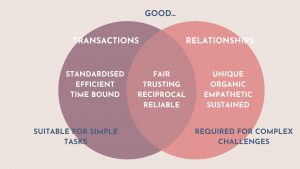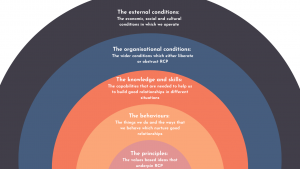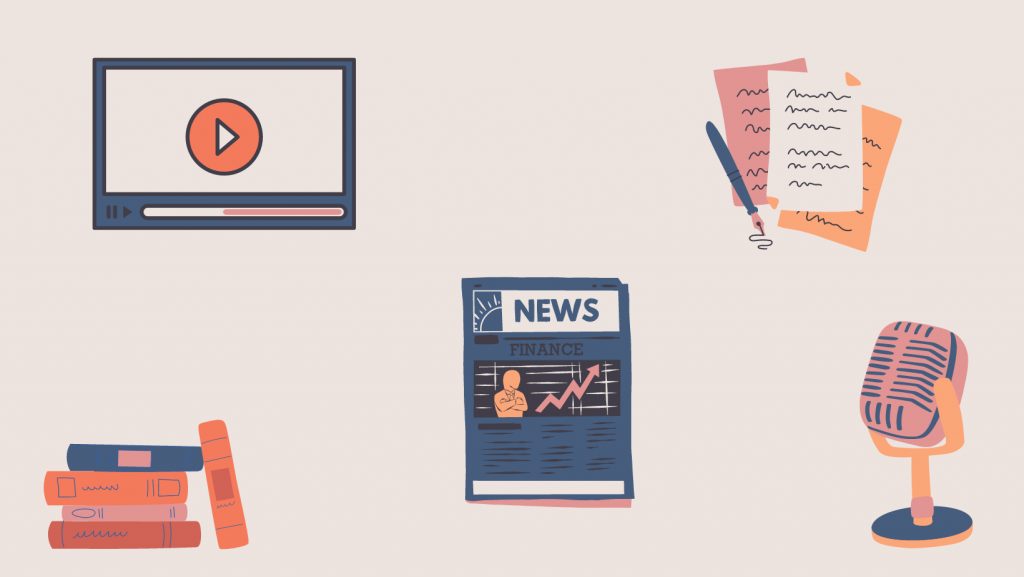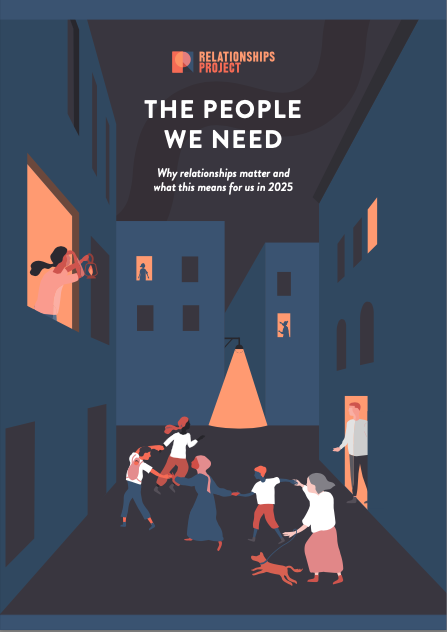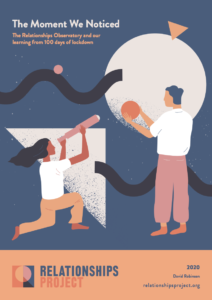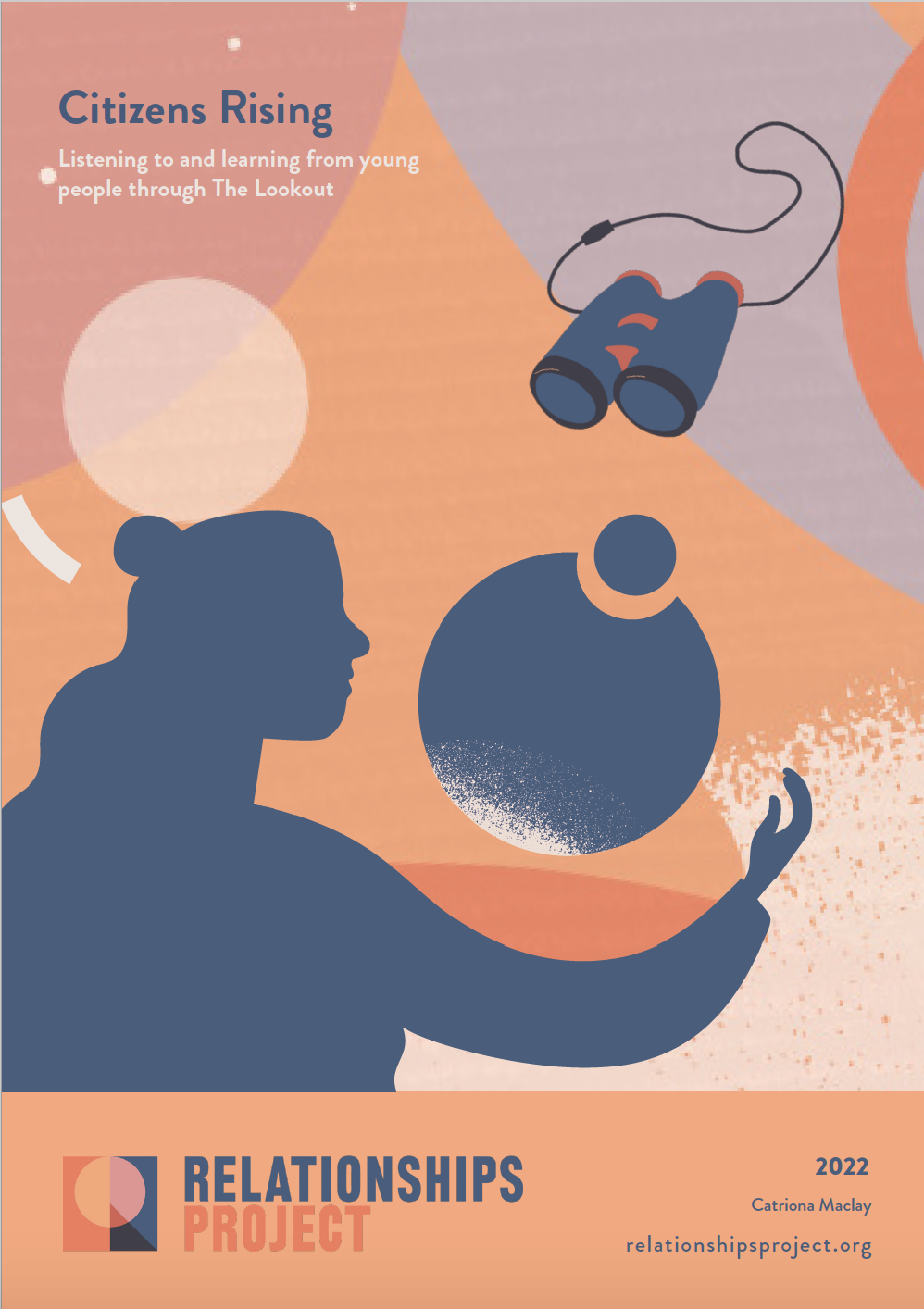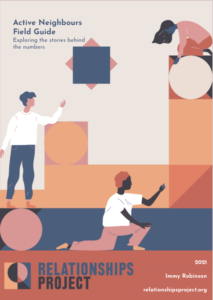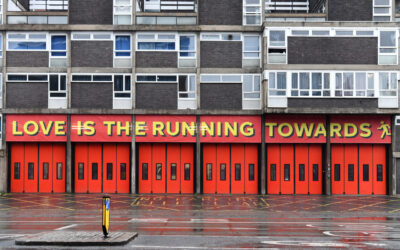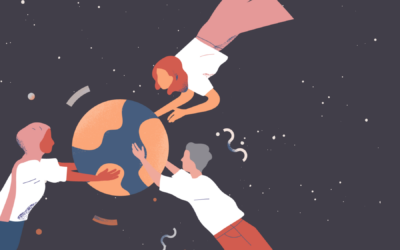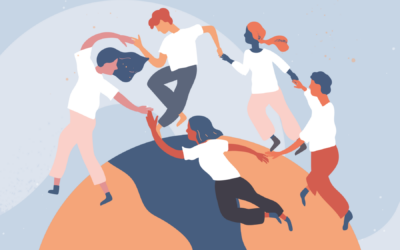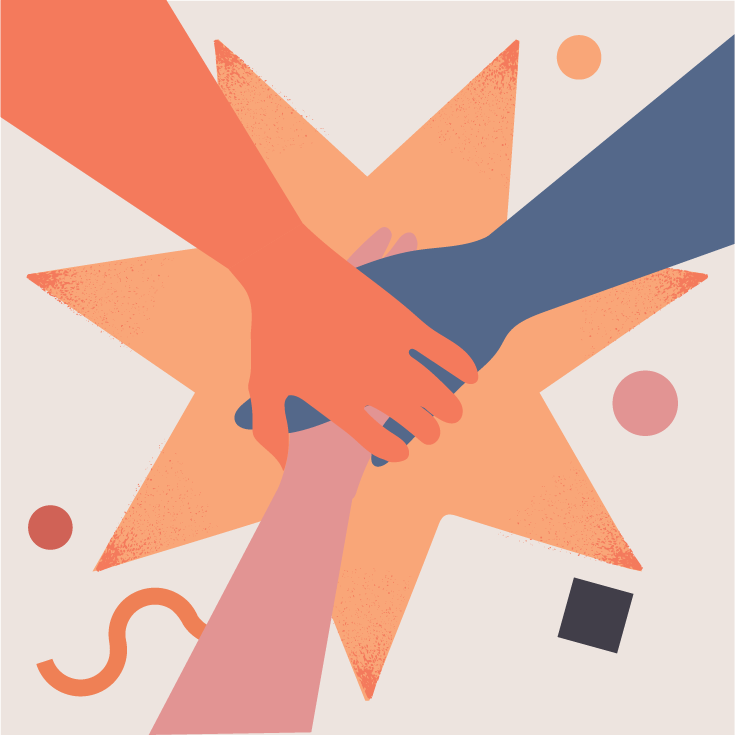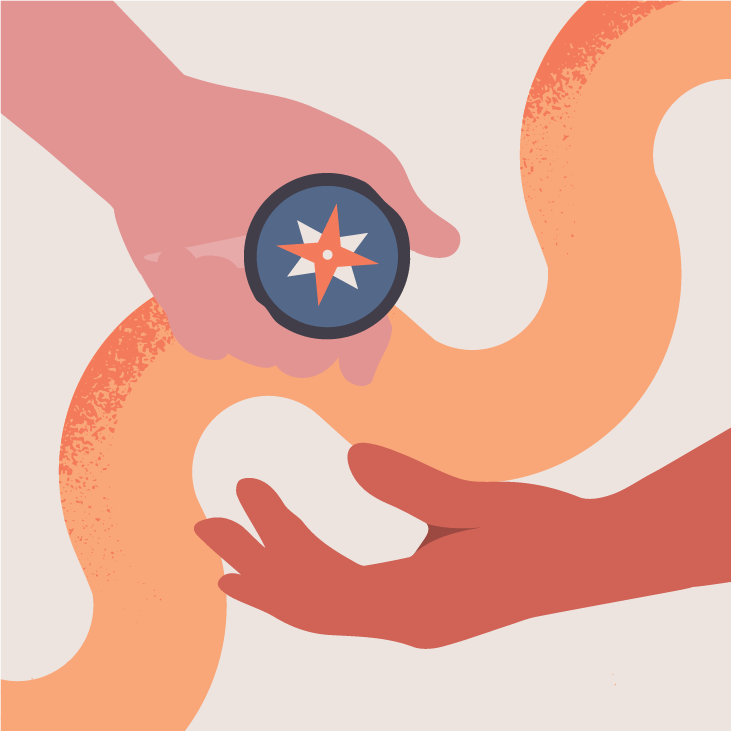Knowledge Bank
Insights, evidence and ideas about relationships
Key Concepts
What we mean by good relationships
We often use the word ‘relationship’ to mean many different thing. To draw out what we mean by good relationships, we find it useful to draw comparisons with transactions.
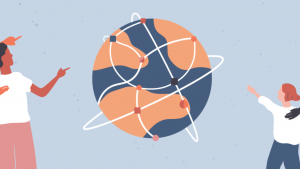
The impact of putting relationships first
The Relationships Case Maker brings together compelling statistics and vibrant real life stories of the impact of putting relationships first across a range of sectors and specialisms
What we mean by relationship-centred practice
Relationship-Centred Practice (RCP) puts relationships first. It unlocks potential and meets need by positioning meaningful and effective relationships as the first order goal
A glossary of relational phrases
Over the last few years, many of us have been talking more and more about the importance of putting relationships first. Here’s a list of useful terms of phrases that help us explore ideas around relationship-centred practice, and make the case for it
Resource Repository
When it comes to relationships, a huge amount has been written and recorded, uploaded and shared. The Relationships Resource Repository brings together some of the great resources that have been created.
Whether you’re a relationship-centred healthcare practitioner interested in measurement and evaluation, a community weaver wanting to learn about relational approaches to disaster recovery, or a service provider seeking support for building digital connections, we hope you’ll find something useful.
Reports
The People We Need
Why relationships matter and what this means for us in 2025
Relationship building is rarely seen as a priority, but without strong societies and effective relationships we cannot hope to deal with the problems that we face as a country. This is the conversation that the world needs now.
– Rt Hon Gordon Brown
Our relationships with one another are the foundations, the bedrock, on which all else is built. Every aspect of our lives, individually and collectively, depends on the quality and strength of our relationships. And yet UK society has consistently undervalued relationships, marginalising the evidence.
We can set a different course and build a different future – if we make the policies, create the conditions and nurture the skills that bring about thriving relationships. We need each other and we all have a part to play.
Putting Relationships First
The case for relationship-centred communities, organisations and systems
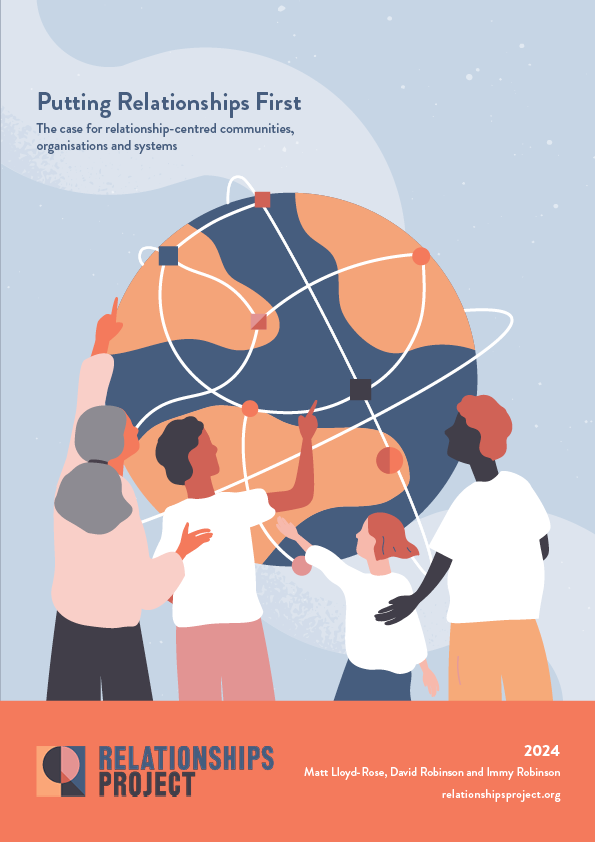
One of the best things about talking about relationships is that everyone has a story to tell. We remember the relationships that have mattered to us, but as Professor Waldinger says “This isn’t a touchy-feely idea. It is hard fact.” The global evidence reinforces the anecdotal.
Few people argue that relationships don’t matter. But many feel they don’t have the time, capacity or permission to prioritise them.
This Case Maker assembles the evidence base for putting relationships first, describing why relationships matter, what great relationship-centred practice looks like, and how it could make an impact in your context. Compelling evidence summaries and statistics sit side by side with vibrant real-world stories of relational work from across sectors and contexts. There are voices in these pages from the worlds of social care, public health, the arts, prison rehabilitation, community organising, social integration, death care and education.
The Sense of Connection
Relationships and strong communities, in crisis and beyond
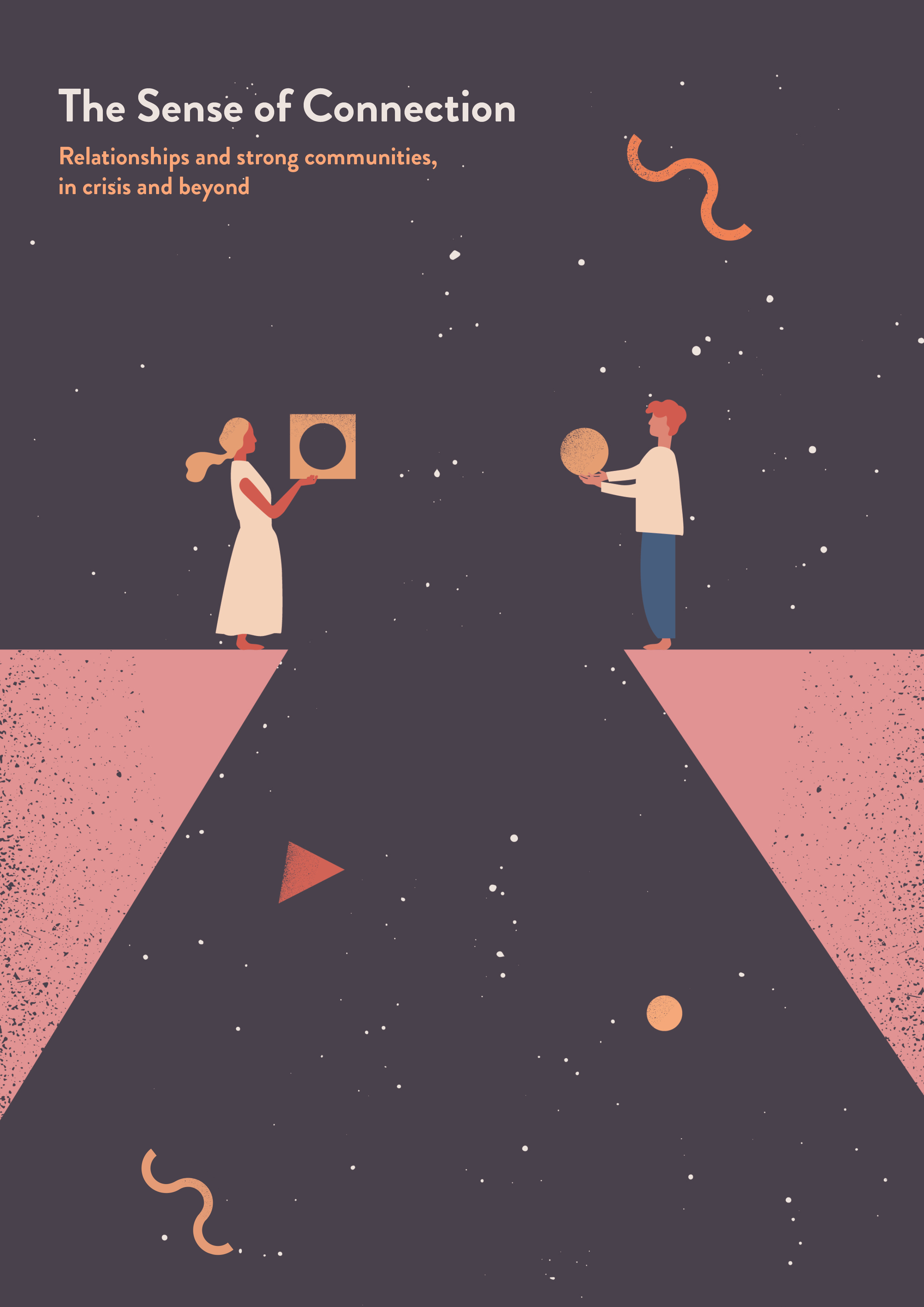
This is a brittle Britain. Fragile, anxious and uncertain. Past the worst of the pandemic but not over it. Fearing the multiple costs of a hard winter.
There’s much we can learn from previous disasters about repairing and strengthening the social fabric. In this report, we draw on the expertise of the After Disasters Network in the crafts of disaster recovery and conflict transformation, and weave this together with all that we’ve learned from our own network about community development.
We share some steps that we might take together as we navigate the road ahead and we invite you to join us in understanding how to support strong and connected communities.
The Moment We Noticed
Reporting on our learning from the first 100 days of Covid, we identify a set of shifting undercurrents in how we are behaving with one another
Turning to the Light
Reporting on the first year of the pandemic, we identify areas of light and areas of darkness and call for a hopeful reading of what is to come
Citizens Rising
Reporting two years on from the start of the pandemic, we share the perspectives and priorities of young people forgotten during the response
Active Neighbours
Exploring the stories behind the statistics, we outline a set of ‘personas’ capturing the experiences, needs and motivations of ‘Covid volunteers’
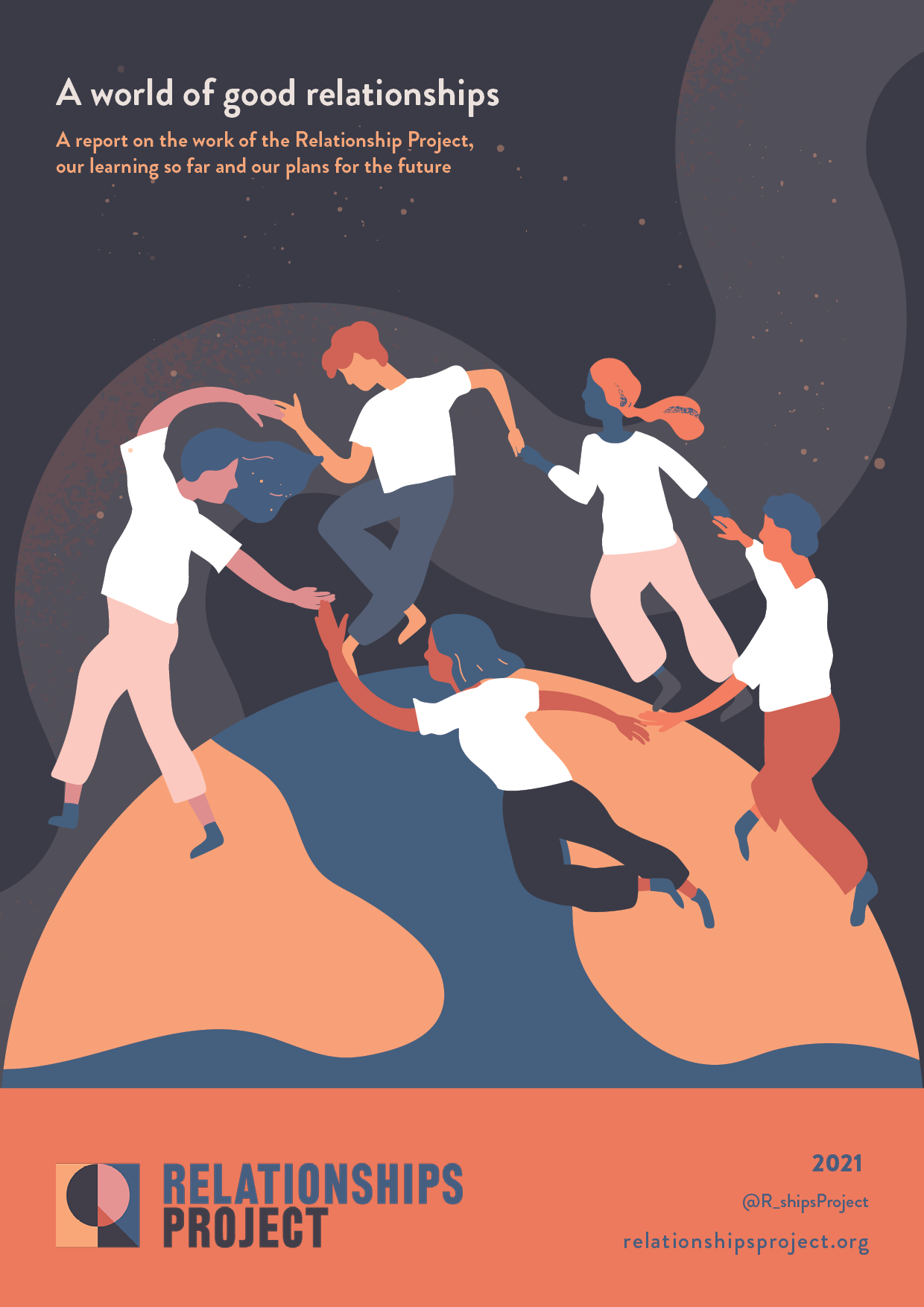
A World of Good Relationships
How are we to heal divided communities, trade fairly, care for the displaced, or share the natural world? How are we to live together? A World of Good Relationships sets out our long-term vision for a world built for and around relationships.
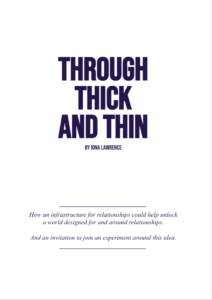
Through Thick and Thin
Drawing on conversations with over 100 people, Iona Lawrence explores how an infrasturcture for relationships could unlock the collective action we need to accelerate progress towards a world designed for and around good relationships
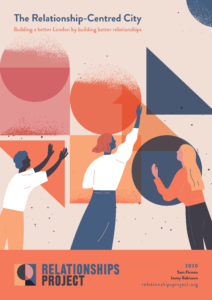
The Relationship-Centred City
Imagine a city where relationships were the central operating principle. What would change? We explore the things that all of us can do to build better cities by building better relationships, in collaboration with 22 Londoners
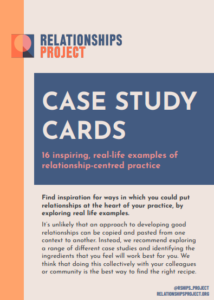
Case Studies
There are lots of great examples of relationship-centred practice across different sectors, disciplines and regions. Our case studies celebrate and share a host of organisations and communities that are putting relationships first, to good effect
More from the blog
Four signs: Love is the running to strangers
In this short, personal blog, David reflects on the power of kindness, and runningthrough fire.Early one morning "I’m leaving today." "Leaving?" I said, puzzled by the early morning call and pushing back sleep, "Where are you going?" "Leaving," she said slowly,...
Our plans for a Relational Practice Academy: Where we’ve got to
In David Robsinon’s LSE lecture in 2023, he talked about the idea of responding to the increasing demand for knowledge about relationship-centred practice by developing a new training institution. We published a blog last autumn setting out more detail and invited...
The Relational Neighbourhood
In brief Nick Sinclair and David Robinson have been mulling over a new blog for a while. It has been almost five years since their pandemic reflection on “the art of the covenant” (2020). A lot has changed since then but the underpinning principles of their thinking...

